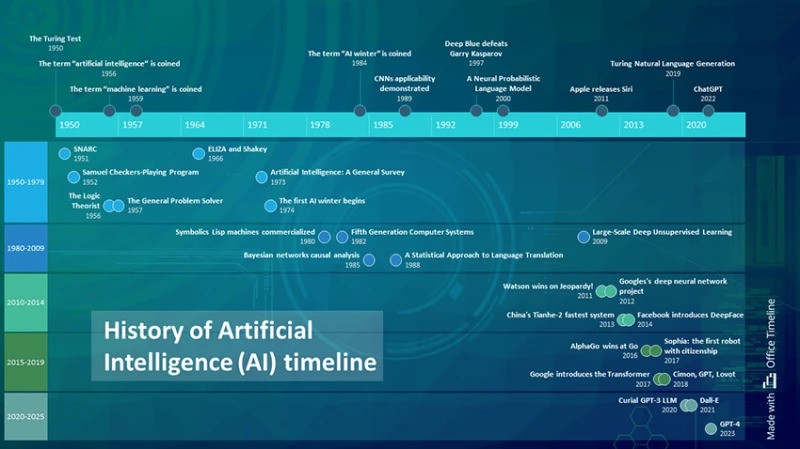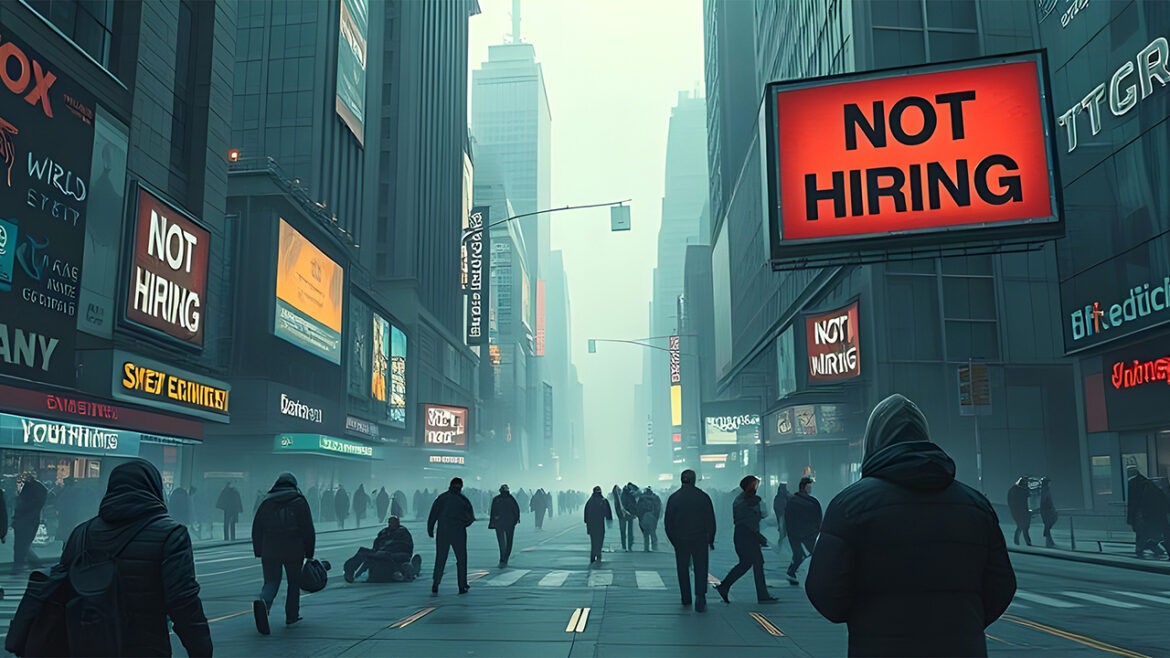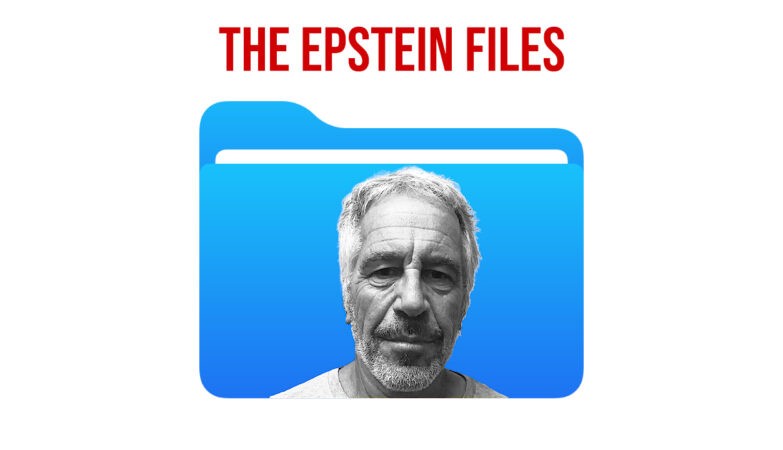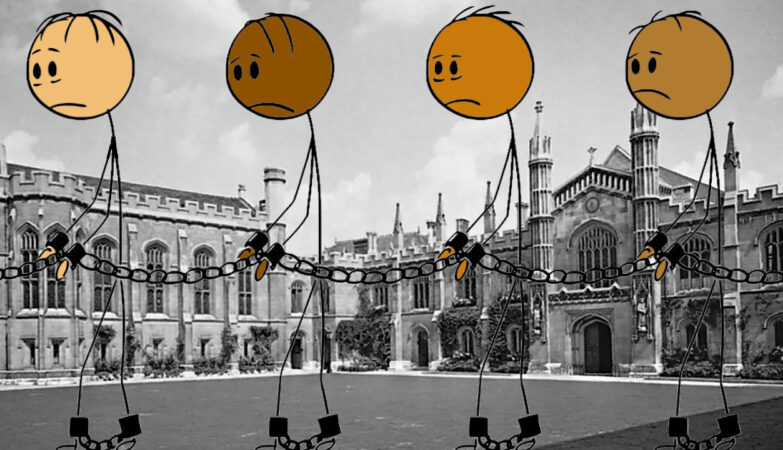The rapid advancement of artificial intelligence (AI) is set to “revolutionize” industries worldwide, with profound implications for the global workforce.
Because by 2030, it is predicted that AI will displace over 800 million jobs, equivalent to 30% of the entire workforce. This shift, highlighted in a 2017 study by McKinsey, paints a picture of a future where much of the work we do today will either be augmented by or fully replaced by AI.
The Transformation of Jobs by AI
In 2017, long before the breakthrough of AI models like ChatGPT and GPT-4 entered mainstream use, research revealed that over 60% of workplace activities were automatable. Fast forward to 2025, and we are only five years away from witnessing this massive transformation. The rise of AI has the potential to reshape industries such as manufacturing, healthcare, logistics, and customer service. This reshaping will involve less human beings and more lines of code.
From performing routine tasks to making complex decisions, AI has the capability to handle a wide range of functions that were traditionally reserved for humans. This begs the question: how can we prepare ourselves for a future where AI dominates many industries?
Adaptation or Revolution
There are two roads we can take in my opinion. The path of acceptance or the path of resistance.
The elite class and corporate world has plans for a new future.
This future of work will require us to rethink and adapt to new skill sets that align with the era of automation. While AI will replace many existing roles, it will also create opportunities in areas like AI development, data science, and human-AI collaboration. Developing skills in these emerging fields will be crucial for staying relevant in the job market.
Learning how to work with AI despite fearing its arrival is essential. Human creativity, emotional intelligence, and the ability to manage complex social interactions are aspects of the human experience that AI cannot easily replicate. These skills will become invaluable as AI takes over more mundane and repetitive tasks.
For one who rejects this dystopian future, options are limited because let’s be honest here, the majority of the population will continue to comply. From home and vehicle ownership to forever loans or rentals, most will continue to abide in fear of any disruption of their increasingly restricted and mundane lives. Modern society has almost been fully tranquilized.
While some will have the financial means and determination to escape to some kind of alternative lifestyle, most of us will be trapped in the very intentional vicious cycle of daily life, including debt. Hell, an estimated 60% of Americans can’t even afford to go more than three months without a paycheck.
Violence is a viable option and may just be the only one the common folk have left, although it begs the question of how many are truly willing to give up everything in hopes of building a brighter future they will likely never see (i.e. Luigi Mangione and most recently, Shane Tamura).
Industries In Which Automation Will Create the Most Jobs
Too scared to become the next revolutionary and media headline for a week before the masses are once again distracted by some growing TikTok trend like Labubu? Then continue reading, you’re definitely going to need this information.
What is the safest option in a rapidly changing, tech-oriented world heavily relying on AI technologies? You know the answer. Become one of those who create new solutions, automate processes, and implement and support new technologies. The number of jobs in Artificial Intelligence and Information Technology (IT) will definitely increase. Data engineers, data scientists, computer vision engineers, and IT professionals specializing in technology development and automation will stay in hot demand by 2030.
Embracing AI: A Path to Abundance
While the transition to an AI-dominated world can seem daunting, there is a silver lining. The speaker in the video above, Julie McCoy, refers to this period as the “age of abundance”. As AI continues to free us from routine labor, we have the chance to embrace opportunities that allow us to innovate, create, and explore new horizons. The key lies in adapting to the changes that AI brings and leveraging the technology to augment human potential.
Many so-called experts, including those interviewed by McCoy, believe that universal basic income (UBI) could be one solution to address the challenges posed by AI-driven job displacement. UBI would provide a safety net for individuals as they transition into new, AI-enhanced roles or shift towards creative and entrepreneurial endeavors.
What could go wrong with an increasingly authoritarian government controlling wealth distribution amongst the majority of the population as jobs become far and few between?

The Jobs Most At Risk
Microsoft recently released a new study that ranked 40 occupations it believes are most at risk from advanced AI tools, including writing and journalism roles, customer support and data analysis.
The study also identifies 40 jobs with minimal AI exposure, particularly those that require a physical presence or hands-on interaction.
- Customer Service Representatives
- Sales Representatives of Services
- Market Research Analysts
- Management Analysts
- Data Scientists
- Public Relations Specialists
- Technical Writers
- Editors
- Writers and Authors
- News Analysts / Reporters / Journalists
- Interpreters and Translators
- Proofreaders and Copy Markers
- Web Developers
- Public Safety Telecommunicators
- Business Teachers, Postsecondary
- Economics Teachers, Postsecondary
- Library Science Teachers, Postsecondary
- Political Scientists
- Historians
- Mathematicians
- Statistical Assistants
- Demonstrators & Product Promoters
- Models
- Hosts and Hostesses
- Concierges
- Advertising Sales Agents
- New Accounts Clerks
- Counter and Rental Clerks
- Telephone Operators
- Ticket Agents and Travel Clerks
- Broadcast Announcers & Radio DJs
- Brokerage Clerks
- Farm & Home Management Educators
- Telemarketers
- Personal Financial Advisors
- Interpreters / Translators (duplicate reference in original)
The Jobs Least At Risk
- Automotive Glass Installers and Repairers
- Bridge and Lock Tenders
- Cement Masons and Concrete Finishers
- Cleaners of Vehicles and Equipment
- Commercial Divers
- Construction Laborers
- Continuous Mining Machine Operators
- Cooks, Short Order
- Derrick Operators, Oil and Gas
- Dishwashers
- Dredge Operators
- Drywall and Ceiling Tile Installers
- Earth Drillers, Except Oil and Gas
- Excavating and Loading Machine and Dragline Operators
- Fallers (logging)
- Fence Erectors
- Floor Sanders and Finishers
- Food Cooking Machine Operators and Tenders
- Forest and Conservation Workers
- Graders and Sorters, Agricultural Products
- Highway Maintenance Workers
- Insulation Workers, Mechanical
- Janitors and Cleaners
- Landscaping and Groundskeeping Workers
- Logging Equipment Operators
- Mine Cutting and Channeling Machine Operators
- Oil and Gas Rotary Drill Operators
- Packaging and Filling Machine Operators and Tenders
- Painters, Construction and Maintenance
- Parking Lot Attendants
- Paving, Surfacing, and Tamping Equipment Operators
- Pest Control Workers
- Phlebotomists
- Plasterers and Stucco Masons
- Pourers and Casters, Metal
- Refuse and Recyclable Material Collectors
- Roofers
- Roustabouts, Oil and Gas
- Structural Iron and Steel Workers
- Tire Repairers and Changers
How to Prepare for the AI Revolution
If you’re wondering how to prepare for this future, start by exploring the following steps:
- Reskill and Upskill: Learn AI-related skills like data analysis, machine learning, or even prompt engineering. These skills will help you navigate the AI landscape and stay relevant.
- Embrace Lifelong Learning: The pace of technological change is fast, so staying curious and adaptable is crucial. Continuously seek out learning opportunities, whether through online courses, books, or certifications.
- Stay Agile and Open-Minded: Don’t cling to old ways of working. Embrace AI tools to enhance your productivity and performance in your current role.
- Collaborate with AI: Focus on roles that require human skills, such as creativity, critical thinking, and emotional intelligence, which AI cannot easily replace.
- Become Self-Sufficient: Understand that with job scarcity and rising cost of living, taking steps to become your own provider of necessities such as food may truly be the line between comfort and struggle.
- Prepare for the Worst Case Scenario: It is inevitable that many will not survive or be able to adapt to this transition. Homelessness and violent crime will likely increase as those earning low (or no) incomes become desperate. You might just end up as one of them or a victim.
Conclusion: Preparing for the Future
The future will be dark for most and bright for those who own the means of wealth in their respective countries. However, by adapting and acquiring new skills, many can still secure their place in a world where technology plays an increasingly dominant role or at the very least, secure a place for survival.
- https://medium.com/@amiramaharanicreates/ai-will-displace-billions-of-jobs-by-2030-how-you-can-prepare-5cf3206ff9e6
- https://codegym.cc/groups/posts/25745-ai–the-jobs-market-which-professions-will-vanish-by-2030-and-how-to-thrive-in-the-new-reality
- https://www.microsoft.com/en-us/research/publication/working-with-ai-measuring-the-occupational-implications-of-generative-ai/
- Pam Bondi and Kash Patel Are Protecting Elite Pedophiles - February 12, 2026
- Why the Dead Internet Theory Is True - February 11, 2026
- Why Republicans Will Lose the 2026 Midterms - February 8, 2026






















